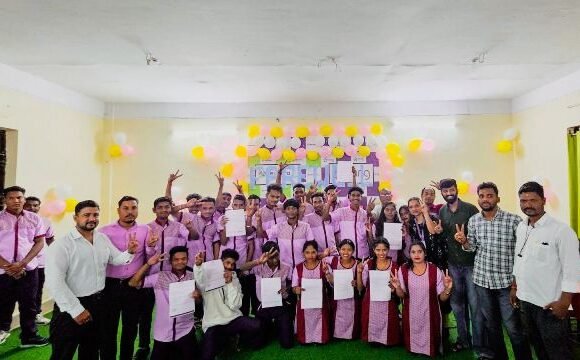Tribals plan big through traditional farming to fight Covid-19 in Odisha’s Kandhamal district
Source: The Asian Age: Writer: A K Sahoo
Phulbani, July 27: It’s an interesting story about indigenous tribal people. Miles away from Odisha capital Bhubaneswar, they live in the lap of virgin, lush green forests, without much expectations of what the modern man wants – motor cars, bikes vehicles, enough cash in hand and other luxury items. What they mostly long for is unhindered access to the forest land in their vicinity. Their forefathers had access to the lands and they even grew a variety of crops in them until the state forest department allegedly snatched the patches to plant trees under the afforestation programme.
This is the story of the primitive Kutia Kondh tribals living in the hilltop villages under Belaghar gram panchayat in Odisha’s Kandhamal district. The 6,500-odd Kutia Kondhs, most of whom have not climbed down the plains below the hilltops and seen the district headquarters, primarily depend upon traditional agriculture practices and collection of forest produces for survival.
Working for a few hours in the forenoon session in the lands and getting themselves lost in music and dance in the evening was their way of life. However, this simple life has allegedly been disturbed in the past few years after the forest department took away their long-occupied land. Efforts to reoccupy their lands under Forest Rights Act-2006 have often led to direct confrontation and incarceration of leaders.
“I have been cultivating a patch of land measuring around one acre since long. But a few years ago, the forest department took away the land and planted non-forest species plants in it. When we opposed, we were booked under various charges and some of us were arrested. A few of our villagers had to languish in jail for months,” says a Kutia Kondh woman Sandegadu Majhi of Burlubaru village.
Things have changed for the better in the area now. Awakened about their rights under the Scheduled Tribes and Other Traditional Forest Dwellers (Recognition of Forest Rights) Act, 2006, usually referred to as the Forest Rights Act, they have begun to make claims over the forest land they have been cultivating for years for a sustainable living. The Act guarantees the forest dwellers, especially the tribals, ownership over the land they have been cultivating or dwelling before 2005.
“Because of our interventions, some of the residents have got the title or record of rights (RoR) of the land they have been tilling for decades. More applications have been filed with the state administration for giving more lands to the Kutia Kondh tribals under Individual Forest Rights and Community Forest Rights categories under the Forest Rights Act,” informs Y Giri Rao, Director, Vasundhara, Odisha.
“If forest lands are provided to us, we can grow our traditional variety of foods to sustain ourselves. This year, considering the pandemic situation, we have decided to undertake farming of traditional crops on the forest land. Crops like pigeon pea, finger millets, little millets, nizer,maize and teel will be cultivated. We hope guest workers who have returned home from other states will be absorbed in cultivation and thereby defeat the blues Covid-19 crisis,” says Jake Radu Jani, a tribal farmer.






